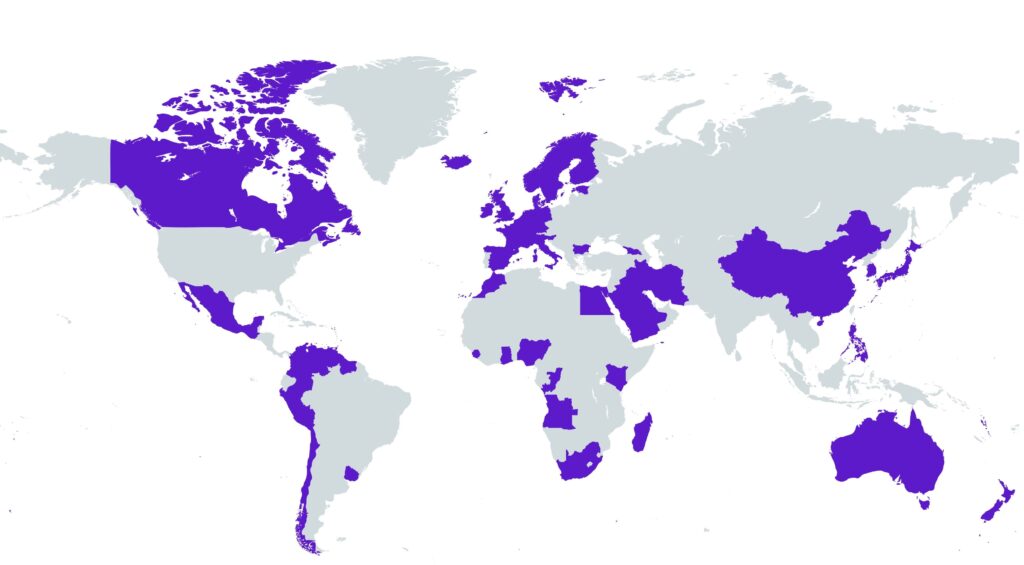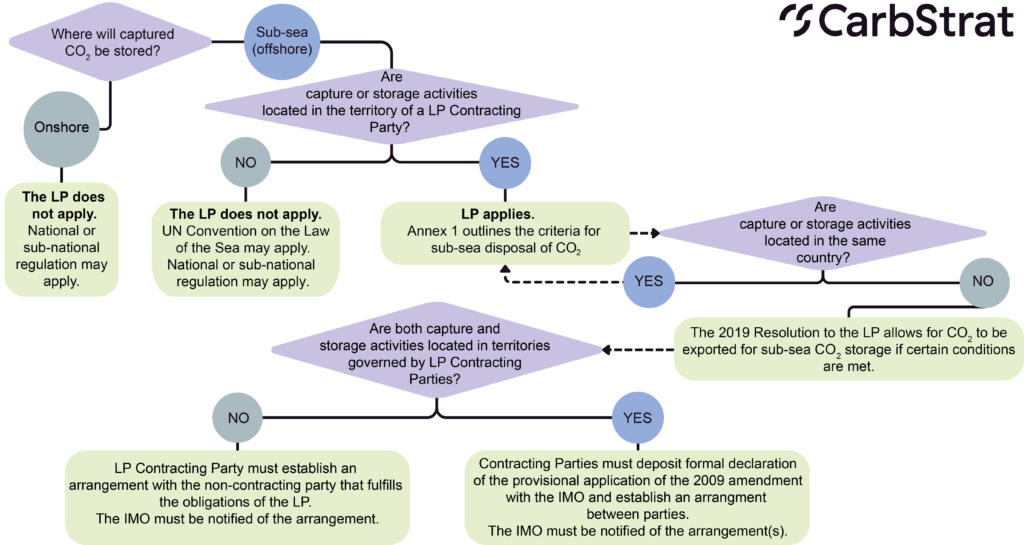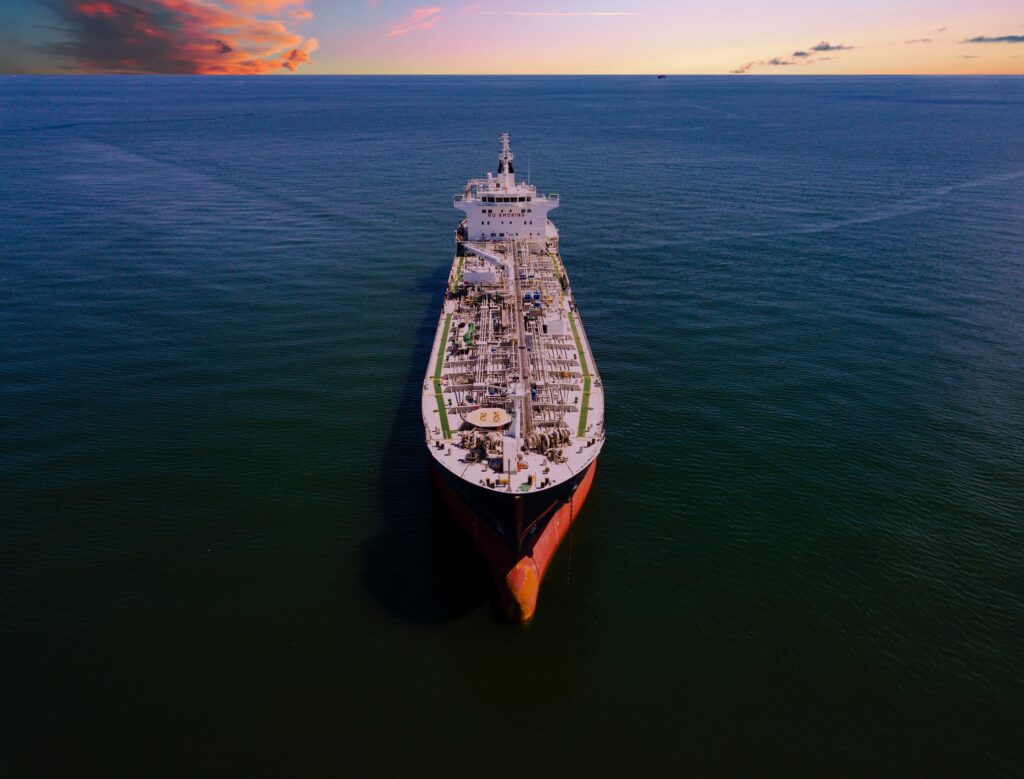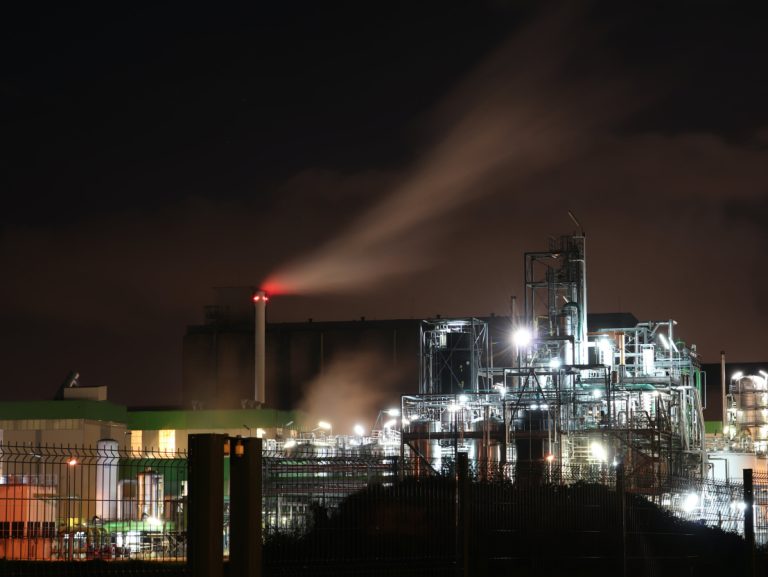Development of carbon management activities is accelerating
Over the last few years, interest in carbon capture, utilization, and storage (CCUS) technologies has grown due to the role they play in carbon management. According to the Global CCS Institute (GCCSI) Global Status of CCS 2023 report, the capture capacity of CO2 capture projects in development or construction grew by almost 50% year-on-year. Additionally, as of July 2023, there were more than 392 carbon management projects in development around the world, representing a year-on-year growth of 102%.
In addition to accelerating project development, advancements are being made on legal and regulatory frameworks around the world. Project developers are closely watching these frameworks and are keeping an eye out to see how international treaties can impact the feasibility of their specific projects. Chief among these treaties is the London Protocol.
What is the London Protocol?
The London Protocol (LP) is an update of the London Convention. It is an international treaty that entered into force on March 24, 2006, and as of March 2024, the LP has 54 Contracting Parties (i.e., countries where the treaty is in force).
Both the LP and the earlier London Convention address marine pollution and protection of the marine environment. The LP prohibits dumping (i.e., the deliberate disposal of waste) at sea with the exception of certain wastes that may be considered for dumping. These are listed in Annex 1 of the treaty along with some of the conditions for disposal.
Contracting Parties of the London Protocol

How does this apply to carbon management?
Given its focus on the marine environment, the London Protocol is only relevant to carbon management activities that include offshore components. This insight piece addresses how the LP regulates sub-seabed storage. Other carbon management techniques that occur at sea may also be governed by the LP.
Offshore storage of CO2 is the deliberate disposal of CO2 in a marine environment, thereby qualifying it as dumping at sea. For that reason, it is generally accepted that the LP provides an international legal basis of offshore CO2 storage.
Annex 1 of the LP includes captured CO2 as an acceptable waste for dumping at sea provided it meets certain criteria and will be stored in a sub-seabed geological formation. Therefore, the requirements and restrictions outlined in the treaty apply to offshore CO2 storage and captured CO2 that will be stored offshore as long as either CO2 capture, CO2 storage, or both occur in the territory of a country that is party to the LP.
A potential barrier to widespread carbon management
The London Protocol poses a barrier to carbon management because of the limits it places on waste export for the purpose of disposal at sea. Article 6 of the LP states “Contracting Parties shall not allow the export of wastes or other matter to other countries for dumping or incineration at sea”. Effectively, this means that captured CO2 (the waste) cannot be exported to another country if it will be stored offshore (the dumping at sea). That said, steps have been taken to address this barrier.
A path forward for the legal export of CO2 for offshore storage
In the LP, “export” is not a defined term. In 2009, an International Maritime Organization (IMO) working group determined that “export” would be any movement of CO2 from one Contracting Party to another country for the purpose of offshore CO2 storage. That same year, Contracting Parties addressed this roadblock with Resolution LP.3(4) on the Amendment to Article 6 of the London Protocol. Widely referred to as the 2009 Amendment, Resolution LP.3(4) adds a new paragraph that unblocks CO2 export for the purpose of its offshore storage. The amendment has not yet entered into force. For it to become legally valid, two-thirds of the Contracting Parties of the LP have to accept it, but only 10 countries had done so as of October 2023. The 2019 Resolution is a stop gap measure. The IMO encourages Contracting Parties and countries looking to join the LP to adopt the 2009 Amendment.
In order to prevent the LP from being a permanent roadblock, LP Contracting Parties adopted the Resolution LP.5(14) on the Provisional Application of the 2009 Amendment to Article 6 of the London Protocol in 2019. This resolution allows for the export of CO2 for the purpose of sub-seabed geological storage as long as the relevant Contracting Party(ies) notifies the International Maritime Organization (IMO) that they will be provisionally applying the 2009 Amendment and that they comply with the requirements laid out in the amendment.
The 2009 Amendment added a paragraph to Article 6 of the LP. That new paragraph allows for the export of CO2 for sub-seabed geological storage provided an “agreement or arrangement has been entered into by the countries concerned” and that they notify the IMO of the “agreement or arrangement”. As specified in the Resolution, an agreement or arrangement will need to address permitting responsibilities. If CO2 is exported to a non-Contracting Party, the agreement or arrangement needs to ensure that permits and permitting requirements are in line with what is required by the LP.
Flowchart outlining when and how the London Protocol applies to carbon management activities

What does this all mean and where are we today?
Effectively, the 2019 Resolution provides a legal pathway for London Protocol Contracting Parties to export CO2 for the purpose of offshore storage. Nevertheless, there are still significant hurdles to overcome.
As of October 2023, only 7 (i.e., Belgium, Denmark, the Netherlands, Norway, Republic of Korea, Sweden, and the United Kingdom) of the LP’s 54 Contracting Parties had deposited declarations of the provisional application of the 2009 amendment. Japan is notably absent from those seven countries even though two of the seven activities that will be supported by the Japan Organization for Metals and Energy Security (JOGMEC) include transboundary carbon management. However, in February 2024, Japan’s bill on CCS Business advanced to review by the national legislature. Additionally, in March 2024, the government proposed to the national legislature that it should accept the 2009 amendment.
At the time of the 45th Consultative Meeting in October 2023, the IMO had been notified of only one agreement or arrangement relating to cross border transport of CO2. That agreement, between Denmark and Belgium was signed in September 2022. It was the first agreement or arrangement and served as an important test case for the application of the 2019 resolution. In March 2023, CO2 was successfully exported from Belgium and injected offshore Denmark as part of a pilot for Project Greensand. Subsequently, Denmark signed agreements with the Netherlands and France.
Norway and the Netherlands co-proposed the 2019 Resolution and signed a MoU in November 2021 to work on a bilateral agreement. However, it appears that the two countries are still in negotiations, as no agreement has been announced. This suggests that some agreements may require protracted negotiations between governments. A commercial agreement requiring transboundary movement of CO2 between the Netherlands and Norway was announced by Yara and Northern Lights in November 2023. Hopefully we will see an agreement between those countries soon.
Finally, in 2023 progress was made on the adoption of the 2009 Amendment. In November 2023, a bill amending Australia’s existing sea dumping regulation passed parliament. The new bill ratifies the 2009 amendment to Article 6 of the London Protocol and provides a path for permitting offshore storage projects.
Key takeaways
The flowchart earlier in the article outlines whether a carbon management activity will or will not be impacted by the London Protocol. While there is a path forward to enable the legal export of CO2 for the purpose of offshore CO2 storage, it is not a direct one.
The LP can still be a barrier to projects that include cross-border transport of CO2 and offshore storage. Promoters of such projects need to be aware that agreements between governments take time and can cause activities to be delayed.
LP Contracting Parties that intend to support carbon management activities should move to ratify the 2009 Amendment and notify the IMO that they want to provisionally apply the 2009 amendment. They should also start discussing the necessary “agreements or arrangements,” as negotiations of these agreements take significant time.



